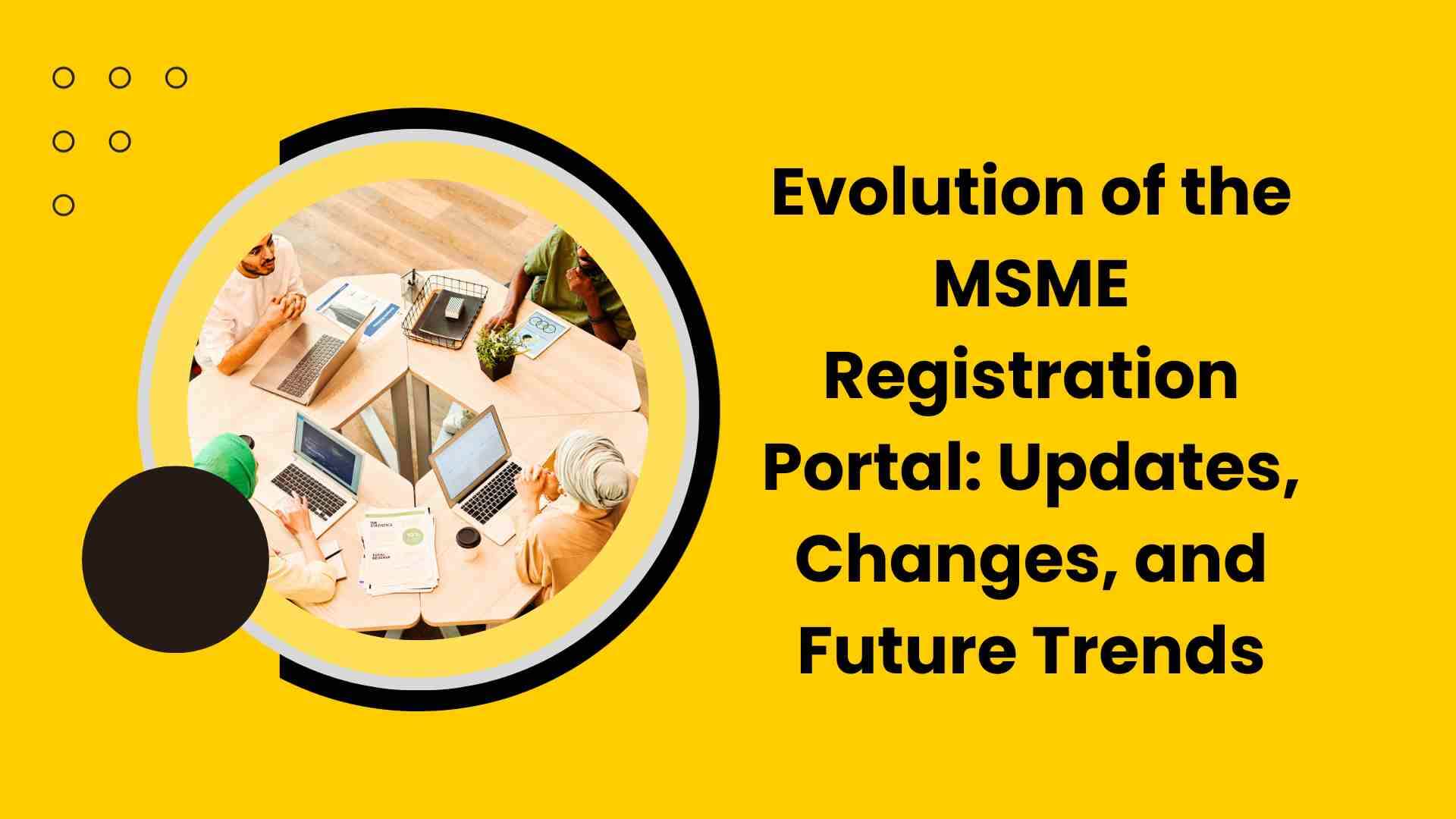Msme registration online refers to the process by which Micro, Small, and Medium Enterprises (MSMEs) formally register their businesses under the MSME Act in their respective countries. The aim of this registration is to provide recognition and several benefits to enterprises falling under the defined MSME criteria. The MSME (Micro, Small, and Medium Enterprises) Registration Portal has significantly evolved over time. Adapting to the changing needs of businesses and advancements in technology. Initially designed as a platform for simplifying the registration process, it has undergone several updates and changes, incorporating new features and functionalities .
The Evolution of the MSME Registration Portal: Updates and Changes
Streamlined Registration Process:
The portal’s initial focus was to streamline the often cumbersome registration process for MSMEs. It introduced online forms, reducing paperwork and facilitating easier submissions.
Enhanced User Interface and Accessibility:
Over time, the portal underwent updates to improve user experience, incorporating intuitive interfaces, and ensuring accessibility across devices. Multilingual support was integrated to cater to a diverse user base.
Integration of Educational Resources:
Recognizing the need for guidance, the portal began offering educational resources, webinars, and FAQs, empowering entrepreneurs with crucial information and guidance throughout the registration process.
Incorporation of Additional Services:
Beyond registration, the portal expanded its services, offering access to financial assistance, government schemes, and networking opportunities for registered MSMEs.
Future Trends and Expectations:
AI-Powered Assistance:
Anticipated future trends include the integration of artificial intelligence (AI) to offer personalized assistance, automate processes. And provide real-time support to entrepreneurs navigating the portal.
Enhanced Analytics and Reporting:
The portal is likely to incorporate advanced analytics tools, providing insights and data-driven recommendations to registered businesses, aiding in decision-making and strategy formulation.
Focus on Digitalization and Cybersecurity:
With a growing emphasis on digitalization. The future will likely see increased measures to enhance cybersecurity within the portal, ensuring the safety of sensitive business information.
Adaptation to Changing Regulatory Environment:
As regulatory frameworks evolve, the portal is expected to adapt, incorporating changes in compliance requirements and providing updated guidance to MSMEs.
Leveraging Technological Advancements:
The evolution of the MSME Registration Portal aligns with technological advancements. Emerging technologies like blockchain and cloud computing are anticipated to play a crucial role in securing data and enhancing the efficiency of the portal. Blockchain, for instance, could be used to secure transactions. And maintain a transparent record of registrations, enhancing trust and reducing fraudulent activities.
Additionally, cloud computing integration could lead to increased scalability and accessibility. This could facilitate seamless interactions, allowing entrepreneurs to access the portal from various devices, enabling real-time updates and collaboration.
Personalization and Customization:
Future trends suggest a move toward personalized experiences within the MSME Registration Portal. Tailoring the interface based on user preferences and history could streamline the registration process further. Machine learning algorithms could analyze past interactions to predict user needs, presenting relevant information and resources.
Customization might extend to offering business-specific guidance, suggesting relevant government schemes, and providing industry-specific insights. This personalization aims to make the portal more user-friendly and efficient for diverse business requirements.
Global Integration and Collaboration:
The future of the MSME Registration Portal could involve greater integration with global networks and collaborations. This integration could facilitate international trade for registered MSMEs by simplifying export-import procedures, connecting them with global marketplaces. And providing guidance on international standards and regulations.
MSME portals might also enable seamless cross-border registrations and access to a broader spectrum of resources and opportunities, fostering a more interconnected global entrepreneurial ecosystem.
Sustainability and Green Initiatives:
Anticipated trends suggest a heightened emphasis on sustainability within the MSME Registration Portal. This might involve incentivizing environmentally conscious practices, promoting green technologies. And providing support and guidance to MSMEs looking to adopt sustainable business models.
Incorporating sustainability criteria into the registration process could encourage businesses to be more environmentally responsible. global efforts towards sustainable development, positioning registered MSMEs as contributors to both economic growth and environmental conservation.
Conclusion:
MSME Registration Portal reflects a dynamic response to the evolving needs of businesses and technological advancements. Through consistent updates, user-centric improvements. And the incorporation of new features, the portal has transformed into a comprehensive platform, offering not just registration services but also a range of supportive resources for MSMEs. Looking ahead, future trends indicate a continued focus on innovation, digitalization, and adaptability to meet the changing demands of the business landscape.









